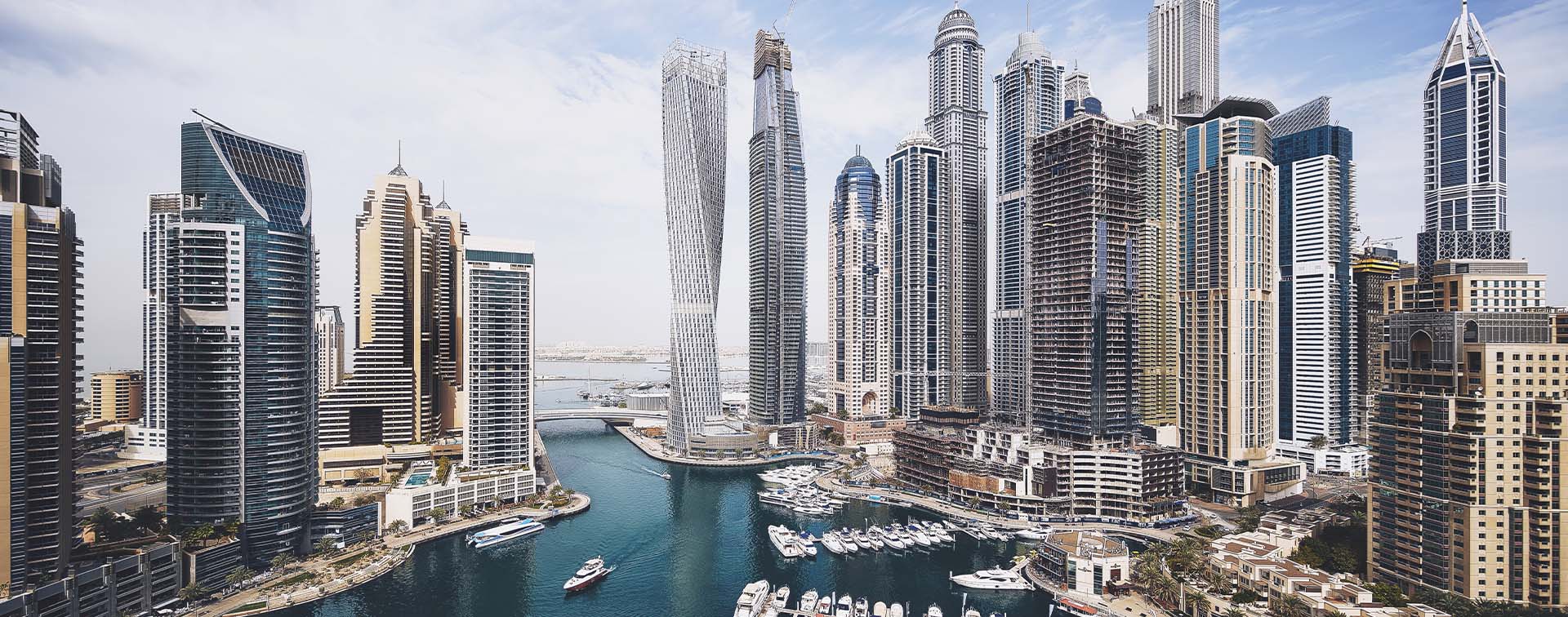
Dr. Robert Mogielnicki is a Senior Resident Scholar at the Arab Gulf States Institute in Washington and an Adjunct Assistant Professor at Georgetown University’s Walsh School of Foreign Service.
Efforts to enhance global connectivity, especially through greater openness to visitors, remain at the center of development agendas in the reform-focused Gulf Cooperation Council (GCC) countries.
Governments across the GCC region are expending tremendous effort to better exploit global linkages. Indeed, the success of country visions and development agendas in many GCC states depends largely on enhanced global connectivity. Oman, Saudi Arabia, and the UAE are enacting ambitious economic reforms, stemming from top-down political determination and — to varying degrees — economic necessity. A key dimension of these reforms involves attracting inward flows of residents, businesspeople, and tourists. Meanwhile, associated economic strategies seek additional benefits in the other direction by generating new connections and commercial opportunities in global markets for Gulf citizens.

The UAE remains the premier node in the GCC region’s global network. High scores in both the Henley Passport Index and the new Henley Openness Index underscore the UAE’s hub status and strong international positioning. Emirati officials have rolled out tailored visa schemes and effective investment attraction strategies for several years. The UAE is also pushing ahead with fast-tracked bilateral trade deals, known as Comprehensive Economic Partnership Agreements (CEPAs), to fully capitalize on global linkages. In addition to four signed agreements, there are more than 10 CEPA negotiations currently underway. Stiff economic competition with neighboring GCC countries means that the UAE cannot rest on its laurels. In July 2023, the UAE’s Prime Minister and the ruler of Dubai Sheikh Mohammed bin Rashid al-Maktoum announced plans to create a new federal ministry of investment to ensure a continued competitive edge.
An ambitious process of economic and social transformation in Saudi Arabia has raised the regional competitive stakes in the GCC. The 1 January 2024 deadline for Saudi Arabia’s Regional Headquarters Program, which requires companies to have an office in the country to secure large government contracts, is fast-approaching. In the first half of 2023, Saudi officials rolled out a new stopover visa permitting transit passengers to perform Umrah and other tourism activities for four days, streamlined visa applications for GCC residents by removing profession-related restrictions, and revealed a temporary work visa valid for three months.
Even the face of transportation to and from Saudi Arabia is changing: the new national airline Riyadh Air plans to connect Saudi Arabia with more than 100 destinations as well as support the tourism strategy’s goal of attracting 100 million visits annually by 2030. Yet much work lies ahead for the Saudi policymakers charged with building a sustainable, non-oil economy. The country’s openness and passport index rankings are among the lowest across the GCC member countries.
Oman has made strong progress with enhancing its openness over recent years. Like Saudi Arabia, Oman eased visa regulations for GCC residents seeking to enter the sultanate. The Omani Government announced in March 2023 that tourists from over 100 countries are eligible for visa-free entry for up to 14 days. Rather than compete directly against the larger neighboring country of Saudi Arabia, Omani officials appear increasingly interested in collaborating with their Saudi counterparts. Oman and Saudi Arabia introduced a unified tourist visa and are exploring a joint tourism calendar and seasonal trips between the two countries.
The remaining GCC states have made some progress toward increased openness, which may eventually help boost economic competitiveness but has yet to become a key policymaking priority in Doha, Kuwait City, and Manama. Qatar enjoys the second-highest openness score in the region after Oman. Qatar’s continued ability to function as a hub for major global events, such as the 2022 FIFA World Cup, and world-class educational institutions depends on remaining an open and attractive destination. Bahrain is betting that spending hundreds of millions of dollars on a waterfront development project and new exhibition center will help attract the tourists and businesspeople needed to further diversify the economy away from oil and gas. Kuwait’s Vision 2035 aims to transform the country into a financial and trade hub, but the ‘New Kuwait’ envisioned is unlikely to materialize amid political deadlock between the country’s appointed government and elected parliament.
The latest openness and passport index rankings by Henley & Partners emphasize a familiar dilemma faced by GCC countries: regional governments can impact the supply-side of the development equation by adjusting visa schemes, enacting reforms, and launching new initiatives. However, a greater supply of such offerings does not necessarily guarantee reciprocity or an immediate boost in global demand from individuals and firms. While GCC countries have generally witnessed higher-than-average movement toward increased openness since 2018, only the UAE has enjoyed a significant increase in its passport index ranking. Both the quantity and quality of global linkages matter. Most GCC governments are targeting high-net-worth individuals to support luxury-focused megaprojects and other priority initiatives.
Over the near term, GCC governments may be more willing to spread the global wealth around the region. A ‘Schengen-style’ visa to facilitate smoother travel between GCC countries is reportedly in the works. Such a step would require greater harmonization of region-wide visa regulations, potentially boosting the openness rankings of several GCC countries and placing the entire region more firmly in the global spotlight.